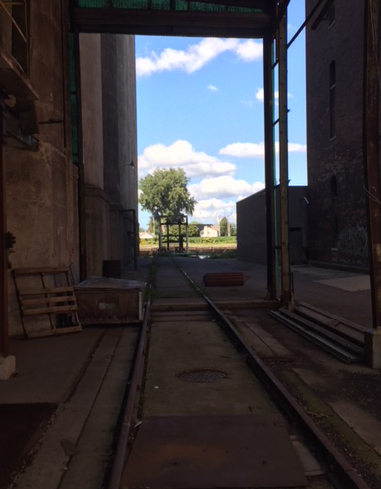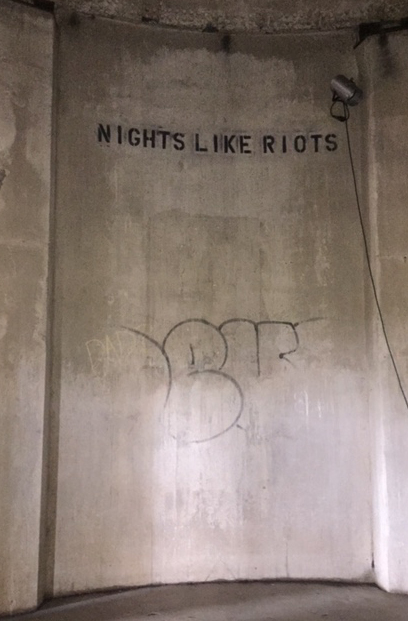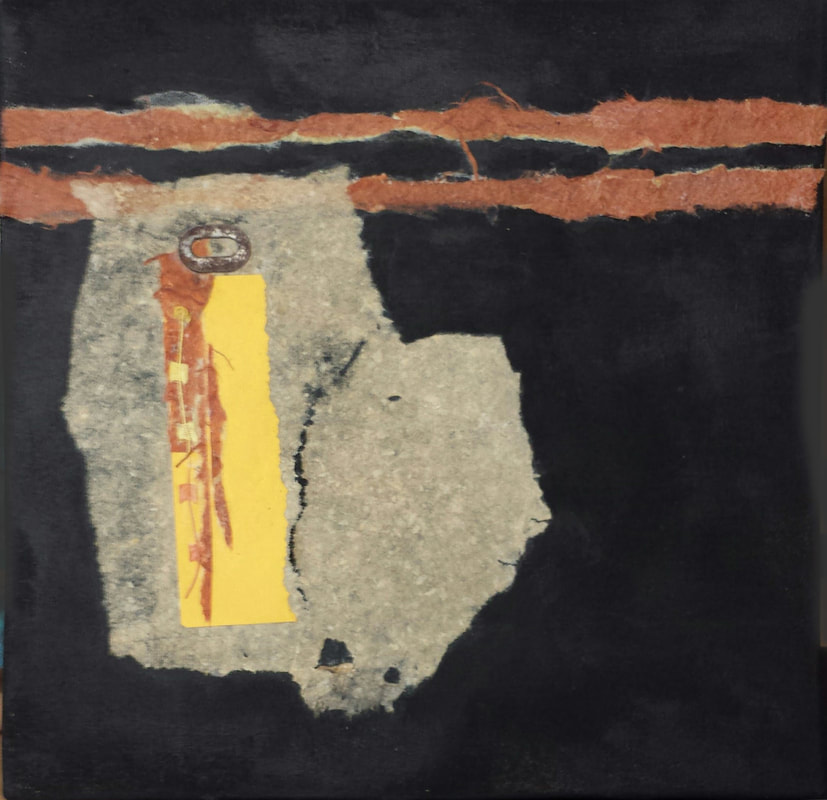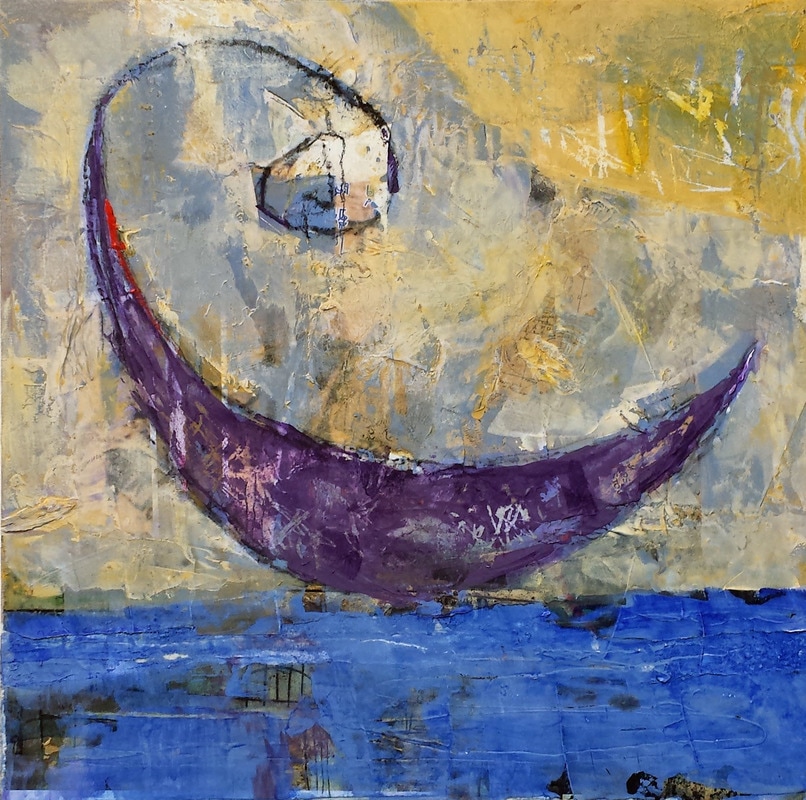
Photo Credit: TL Sherwood
Sara’s new Italian sandals have heels she knows no sane American tourist would attempt on cobblestones. Yesterday the Roman shoe salesman assessed her calves with an unreconstructed male gaze culminating in a subsequent nod of approval—as if her legs had been put on this earth for his pleasure, which she knew was also wrong in every possible way and for which she now pays the price with a sore back and unsteady gait.
Had she even thought about her legs like that in months, perhaps years? The children grab at her skirt and shoulder bag as her husband hurries on ahead in the wake of the tour guide. Sara answers her own question: on a rocky path in the Roman Forum, an American woman jettisons her sensible shoes and doesn’t have a clue which way to turn.
“Gelato,” her son Graham says, for the umpteenth time.
“Gelato,” little Rachel repeats.
They buzz around her like the bees in the Villa Boghese that very morning. Rachel was stung, something so shocking to her that her eyes welled up with indignation more than pain. Sara longs for such shock, although like the sandals, she suspects that the aftermath would hardly be worth it.
Under the shadow of a cross that rises from the ruins, as if Christianity itself were a monumental afterthought, she saunters toward the tour group, drawn not so much by the sights as by the sweat beading routinely, handsomely, on the guide’s brown neck. At the back of the group, her husband Richard appears rapt, his whole being hung on the guide’s every stilted English phrase.
“I can’t do this anymore,” Sara whispers.
Richard wheels around, letting the crowd go ahead to the next sight without him. “What? Why? We have to keep up.”
“You go ahead.”
He looks perplexed yet sincere, as if seeing one more ancient pile of rubble will answer anything. Sara thinks he wants them to carry on by simply going forward.
“I’ll wait in the shade with the kids,” she says. “We’ll meet you outside the Colosseum.”
“Here, take some euros.”
“What for?” Sara gestures at the ancient olive trees, the dry landscape, the spiky weeds poking through stones unmoved for all time.
“Get the kids something from the snack carts,” Richard suggests and turns to them. “What do you think, guys, you want some limonata?” His accent hurts Sara’s ears, he’s trying so hard. She knows she is being uncharitable, but perhaps, she considers, that’s who she is now.
The children huddle, deciding if their longing for gelato can be satisfied by limonata instead. That’s the question, isn’t it? she thinks. Can one high, desperate longing be satisfied by something else instead?
Sara’s husband gives her coins from his jangling pockets. He is generous, always has been. It makes her wonder how they’ll resolve things. Amicably, she suspects.
Graham reaches his sweaty hand into hers for the money. Coins fall to the pebbled ground and Richard tells him to cool it and to pick up the change for his mother.
“All right, you guys,” he adds, “I’ll see you in forty-five minutes over at the entrance to the Colosseum. Help Mommy find me, all right?”
Then he looks at Sara and presses her purse against her hip, ever mindful of the notorious Roman pickpockets, although their family stands alone on the path. He lowers his voice and leans in closer. “You seem a little out of it today. I’ll take the kids later so you can nap. But stay alert now, OK? Don’t get lost.” His expression is as searching and mystified as when he gazed up at the Sistine Chapel ceiling earlier that day.
Sara nods slowly, noncommittally, the latent teenager in her unwilling to offer more. She knows she’s being a brat and wishes he would recognize it, too. Richard turns and scurries up the trail and the children and Sara watch him go. She tries to picture that this is how it will be from then on.
Over the past week, their family has stumbled into dark medieval churches looking for the finger bones and femurs of saints, the preserved bodies of bishops still in their robes, their wax faces surprisingly plump considering there’s nothing inside. The bodies are hollow, eviscerated, and yet people kneel before them and close their eyes.
Graham pulls on Sara’s purse and jolts her back to the moment. “Euros, Mom. We’re dying of thirst.”
For an eleven-year-old, he has the presence of someone much older, she thinks, packing all the punch his father lacks. Somehow Sara knows her son will be all right. And little Rachel will be too young to remember. She will try to recall her parents together from snapshots on trips like this one—the picture this morning in front of the fountain in the Villa Borghese. Their separation will mix in her mind with that first bee sting and the Mediterranean heat, all mysterious and conveying a pain that startles, but eventually envelopes, like humidity on the skin.
Graham takes the coins and grabs Rachel’s hand. They dash off up the path. At least they have each other, Sara thinks.
“Slow down,” she shouts after them. “I need to keep you in sight.”
“Don’t worry, Mom,” Graham shouts back over his shoulder.
“Yeah, Mom, don’t worry,” Rachel copies. Her voice rises and tangles in the olive branches where the sparrows twitter at midday.
As Sara meanders after them, she notices off to the side of the path a flight of ancient stone steps leading up an embankment to nowhere. At the top, a young Italian couple stands close together, their arms around one another. What a romantic sight, she thinks, the woman with sunlight in the folds of her summer dress. Sara pauses and gazes up at them, prepared to smile and sigh, then move on. The young man wears sleek black pants and Sara notices the way his browned forearms and smooth forehead glisten. The girl rises on her toes to reach him and Sara can understand why.
As they kiss, she notices how the young man’s hand curves over the young woman’s hip. It presses down her thigh and disappears into the fabric between her legs, the small purple, embroidered flowers on the white background crimped against his outstretched fingers. Her skirt will be wrinkled, Sara thinks, and quickly feels embarrassed that she is the only one who cares. Any initial thought that this was a tame embrace vanishes as the girl lets out a throaty laugh and squeezes the man’s shoulder in a claw-like grip. He does not smile and, what’s more important, does not remove his hand from between her legs.
Sara stays frozen on the path, enthralled. She glances down at her new sandals covered now in fine, ancient dust. Something about them on her is as outrageous as the kissing couple, she thinks, and lets out a surprising laugh, too. It’s far quieter than the girl’s, but every bit as guttural and real. Sara rubs the toe of a sandal against the back of her leg, warm from the sun and firm.
When she looks up again, the couple has moved away from the steps and crossed a ledge overlooking a deep archaeological pit. To arrive at their next stopping spot, Sara sees that they’ve slipped around a low rope barrier and entered an area where tourists aren’t allowed. She can’t help wondering what they think they’re doing there in a forbidden area with groups of tourists drifting by on the paths below.
Without thinking, Sara heads off the central path, too. She hurries up the stairs to keep the couple in sight. Each stone step is high and as she ascends, her skirt catches air and flares outward. With heat billowing around her, her thighs feel damp and shadowed and secret beneath the light fabric. When she reaches the top step, she realizes that she now is exposed, too, her purpose unclear. When she looks across at the couple she is glad to see they haven’t noticed her.
They stand, locked in an embrace at the edge of the cliff beside the pit. The man has bent his dark head into the woman’s neck and appears to be feasting there. The neck looks startlingly white against his black hair, and then Sara notices the actual lips and open mouth as he kisses the woman’s skin. The wetness of his tongue on her cool neck, Sara thinks. That’s all she thinks, because it is a thought unto itself: attention must be paid to that tongue and those lips and the press of his body against hers, his hand at the small of her back, pulling her towards him, her dress hiked up, the girl’s leg up now, too, and the pretty violets smashed.
Sara looks away and still can’t fathom what they think they’re doing, what she is doing. They can’t make love there on that cliff, can they? she wonders. Or do people do that in Italy, because it is Italy? Perhaps, like her new sandals, allowances are made for such things—sex and passion woven into everyday life. She finished reading Ferrante’s Neapolitan Quartet on the plane ride over and keeps catching herself searching for tangled, hidden passion everywhere she looks. In Rome, secrets lay as stacked and layered and porous as the crumbled walls of archaeological digs.
Early that morning, metal shutters clattered as the shop opened up downstairs. Voices like none Sara had ever heard before echoed off the alley walls, busting wide apart the day. Arguing voices asking only for some milk. If she shed tears, she knows they wouldn’t translate: any crying in Italian evaporates, unshed in the scorched air. Swallows swoop past now, disrupting thought and whatever is left of her former self.
When she looks up again, the couple is moving on. The man has the woman’s pale hand in his and he’s steering her further across the ledge. Sara spots a grove of olive trees in the near distance and imagines he will take her to that quiet spot, where the rocky ground appears to give way to soft grass. He will ease her to it and the girl will pull him down.
Sara can feel the young man’s hand, the force of it pressing against her thighs. He pushes her back, hair outstretched like a virgin’s on a sacrificial slab. Only nothing about the couple is virginal, and certainly nothing about Sara is, either, which is why she wants to step over the rope barrier, teeter across the precarious ledge, and join them in the partially hidden incline that has been used for this purpose since time immemorial. Only in her own country, in her own stark life, would someone hesitate, Sara thinks, as she hesitates. Yet here she would do it, she tells herself, surely she would.
Then she looks back and realizes she can’t see the main path that leads to the limonata carts or the plaza where Richard will be meeting them shortly. Sara can’t see the kids any longer. She scrambles along the rocky hillside, clomps hastily down the stacked steps, and hurries back onto the trail again. Her greatest fear in this moment is that Richard will have left the tour early and discovered the kids alone by the snack carts. Her absence, she thinks, will prove something undeniable about her. A recklessness and irresponsibility that show she is a bad mother. Richard has recently accused her of being untethered. He doesn’t know the half of it.
In the days before their trip, she lost the car keys three times, accidentally shut the cat in the garage overnight, and forgot to pick up Graham from soccer again. She left a flame on under an empty pot and kept the water going in Rachel’s bath until a grey cloud appeared on the dining room ceiling. Richard may never know the details, but he grasps the overall effect: she’s lost, perhaps dangerously so.
Sara slows on the path and tries to consider the truth. She has been leaving for some time now, so much so as to be already almost gone. It’s a wonder she’s here at all. But she is a mother and a mother needs to be present. She needs to watch over her kids who, she reminds herself with another jolt, are nowhere in sight. The thought of her imminent and justifiable punishment rises before her: he will get the kids if she doesn’t get her shit together.
Sara hurries up the trail and pushes through the turnstile that leads out of the Forum, glancing at the souvenir and snack carts that circle the cobblestones. And look, she thinks, there are her children, bent over their drinks, the long, serpentine straws curving into their mouths. As she approaches, she hears the happy slurping, the pull of the syrupy liquid to their young lips.
Then Sara realizes those aren’t the sounds at all: instead of satisfaction, the burbling noise she hears is crying. She dashes forward and crouches down in front of Rachel. Her daughter’s face is red from the sun, but her cheeks are dry and her expression seems far too old for her age. Sara turns quickly and sees the last thing she expects: Graham’s face streaked with tears. She grabs her son by the wrist, not meaning to frighten him, but he lets out a cry and drops his drink. Acid yellow liquid spills onto the cobblestones like urine.
“What’s wrong?” Sara asks. “Did a bee sting you, too?”
Graham’s narrow shoulders heave and he tosses himself against her. Sara rocks back on her heels and lands on her ass on the hard cobblestones.
“Graham,” she says, starting to scold him, but something in his shaking body stops her. Sara tries to peel her son off her chest so she can see him better, but he won’t let go.
“Rachel,” she says over his shoulder. “Tell Mommy what happened.”
Her daughter bows her head lower toward her drink and lets out an old lady’s worried sigh.
“Did you spend all the money your father gave you? Is that it? You can tell me. I won’t be angry with you.”
She rubs a hand over Graham’s hair and he flinches.
“Children,” Sara tries more seriously, “If you won’t tell me what’s going on, I’ll have to ask one of the grownups here.” She spreads her arm towards the milling strangers, not one bit sure her meager Italian could do the job.
Her son yanks himself away and he shakes his head hard and scowls.
“Oh, for God’s sake, darling, it can’t be all that bad,” Sara says, her voice harsher than intended. She knows she shouldn’t have wandered off, but really, can it be all that terrible?
Graham wipes his cheeks with his forearm and looks at her, pausing for what has to be dramatic effect. “You don’t know, Mom,” he finally says. “You’ll never know.”
Sara can’t help it, but she laughs. Not a lot, and not loud, but enough. She wants to tell her eleven-year-old that he can’t possibly understand the extent to which no one will know, no one will ever understand. The cruelty of her own laughter dawns on Sara a little too slowly and she stops abruptly. The children watch her, worried, perhaps even scared.
She suddenly feels exquisite sympathy for these small people, although in this moment it is hard to grasp that they are hers. Her son’s words, spoken so firmly, seem foreign to her. She simply doesn’t get their meaning. She wants to believe that they are spoken not to inflict pain, but are the pain itself. But even that motherly understanding, she thinks, is lost in this untranslatable moment.
Sara looks past the children. For an instant, the Colosseum recedes into the distance and the cobblestones that fan out around her rise into a wall that encircles her children. She senses they are disappearing down an ancient stone tunnel. She must reach for them before they are sucked away from her and into a rough-hewn quarry where the innocents are taken. It’s a crazy thought, she thinks. The heat is getting to her, dehydration and the pain in her back.
She looks over at the man who runs the limonata cart, hoping he can help return her children to her. She will buy more sugary drinks from him to set things right. Grey stubble shades his face and his eyes are hidden under a plaid cap. Sara sizes him up and wonders if he is the culprit who has harmed her son. Yes, he is the dangerous one. But then the old Italian man smiles down at a little girl who stands beside her mother, politely waiting for her drink. Sara notices the mother holds her daughter’s hand, and she thinks, that should have been me. I should have been that mother, thanking the lemon man.
So if the lemon man didn’t do it, Sara wonders, who did? A young Algerian in an NYU t-shirt leans against his souvenir truck, his head bent into his cell phone. Under the shade of an ancient tree, the ubiquitous matrons dressed in black shake their heads at some long-repeated tale. A blond, Northern European family sits wedged together on a bench, eating their sandwiches on dark bread.
Which one of these people stole my son’s change from his hand, Sara wonders, or tried to sell him something illicit, or yelled at him needlessly? Which one is a pervert or a pedophile, a nightmare come true? It must have been the lemon man, she thinks again. He is the bad guy. Although now he is whistling as he unloads bright lemons from a wooden box.
She decides she will interrogate him nonetheless in a language he doesn’t understand. She will shout at the old man in English and blame him and insist he explain why this country of fine wines and routine epiphanies has not moored her more successfully to her life. Give me back my son, my family, Sara will shout, when really it is herself she wants returned. That’s when her husband steps into her line of sight. He looks plain and well-intentioned, familiar and somehow right.
“That was fascinating,” he says, nodding over his shoulder at the Colosseum that has righted itself again and appears appropriately colossal.
He leans forward and offers a peck to the air near Sara’s cheek. Instinctively, and for no good reason, she leans toward him, too.
She looks down at Graham to try to understand what has happened between them while his father has been gone. Her son stares up at her with an adult expression, one that shows he has things under control now. He surreptitiously wipes away any sign of tears.
“Everything all right?” Richard asks, glancing at each of them. “Is something wrong?”
“No,” Graham says firmly. “We’re good. Mom bought us lemonade. Mine spilled, but it’s no big deal.”
Graham offers a manly shrug. He is protecting her, Sara realizes. Something bad has happened and he is covering it up for her sake. Something has come between us, something terrible, Sara thinks. A flicker of understanding passes over her as she wonders if that something is her.
Richard looks to her for an explanation, but Sara is at a loss. She looks to Graham again, and after a long moment, she nods in agreement with him that they are fine. Graham and Sara have made a pact. In one brief moment, her son has become fully-grown and capable of deception, as well as sacrifice and love.
But, Sara reminds herself, I am his mother, not his accomplice. Now is the moment to speak up, to set things straight. The voices of strangers, the wings of birds flapping as they rise to the triumphal arch, the chatter of birds as they settle on the cross casting a shadow on the path, the guides explaining significant moments in history to the interested tourists, the calls of the street vendors: Sara must speak above it all. And yet she stalls. She’s still not sure what to say. She stands frozen and feels nothing until Graham steps forward and takes her hand.
“Let’s go, Mom,” he says. “Time to go.”
Sara looks down and wishes she could move forward, take a firm step in her new sandals.
“All right, then,” Richard says as he takes Rachel’s hand. “We’ve got just enough time to catch the next bus back to the hotel.”
“We’re coming,” Graham answers for his mother as he starts to pull them up the ancient stones.
“Richard,” Sara finally says. “Wait.”
Graham looks up at her, his face dark with adult betrayal. He tries again to pull her onward, to march them into the future he assumes is theirs.
Sara turns to her husband, opens her mouth, and begins.
Virginia Pye is the author of two award-winning novels, Dreams of the Red Phoenix and River of Dust, and the short story collection, Shelf Life of Happiness. Her stories, essays, and interviews have appeared in Literary Hub, The New York Times, The Rumpus, Huffington Post, The North American Review, The Baltimore Review, and elsewhere. She lived in Richmond, Virginia for many years and now lives in Cambridge, Massachusetts. Find her online at www.virginiapye.com, FB, Twitter, and Instagram.
“Crying in Italian” first appeared in the anthology Abundant Grace.


























